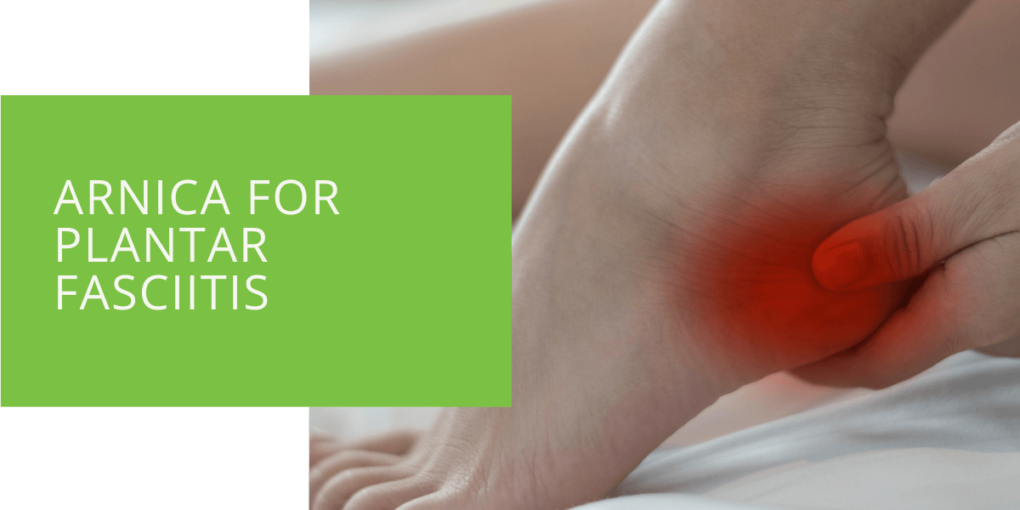Arnica for Plantar Fasciitis: Benefits, Usage, and Effectiveness
Plantar fasciitis is a common foot condition characterized by inflammation and pain in the plantar fascia—the ligament that supports the foot's arch. As people explore natural remedies for relief, Arnica, a homeopathic remedy derived from the Arnica Montana plant, has gained attention for its potential benefits. This article will explore Arnica's usage, benefits, and effectiveness in managing plantar fasciitis.
Understanding Plantar Fasciitis
Plantar fasciitis can be debilitating, causing intense heel pain and limiting daily activities. The condition typically arises due to repetitive strain on the plantar fascia, leading to inflammation and micro-tears. Bruising, tenderness, and sharp pain upon weight-bearing are common symptoms.
Overview of Arnica
Arnica, derived from the Montana plant, has been used for centuries as a natural remedy for various conditions. It is available in various forms, including topical gels and oral supplements. Arnica is known for its anti-inflammatory and analgesic properties, making it a potential option for managing foot pain associated with plantar fasciitis.
Mechanism of Action
Arnica's active compounds, such as sesquiterpene lactones and flavonoids, contribute to its therapeutic effects. These compounds are believed to have anti-inflammatory properties, helping to reduce inflammation in the affected area. Arnica also possesses analgesic properties, providing temporary relief from pain.
Research on Arnica for Plantar Fasciitis
While research on using Arnica for plantar fasciitis is limited, studies have explored its effectiveness in relieving pain and inflammation in other musculoskeletal conditions. Research suggests that topical application of Arnica gel may help reduce pain and promote healing in conditions such as muscle sprains, bruises, and ligament injuries. However, further studies are needed to determine its direct impact on plantar fasciitis.

Using Arnica for Plantar Fasciitis
Arnica Topical Application
Arnica gel is a popular choice for topical application on the affected area. The gel can be gently massaged into the heel and arch, providing localized relief. The anti-inflammatory properties of Arnica may help reduce swelling and alleviate pain associated with plantar fasciitis. It's important to follow the instructions on the product label and avoid open wounds or broken skin when applying Arnica gel.
Oral Arnica Supplements
Oral Arnica supplements, available in tablet or tincture form, can also be considered for plantar fasciitis relief. However, consulting with a healthcare professional before starting any oral supplementation is crucial. They can guide proper dosage, potential interactions with other medications, and any contraindications based on your specific health condition.
Safety Considerations and Precautions
While Arnica is generally considered safe for topical use and as a homeopathic remedy, some precautions should be taken. Avoid applying Arnica gel on open wounds or broken skin. If any allergic reactions or skin irritations occur, discontinue use and seek medical attention. When considering oral Arnica supplementation, it's important to consult with a healthcare professional to ensure safety and proper usage.
Integrating Arnica with Conventional Treatment Approaches
Arnica can be a complementary therapy alongside conventional treatment approaches for plantar fasciitis. It's important to note that Arnica should not replace professional medical advice or prescribed treatments. Consulting with a podiatrist or healthcare professional is essential to ensure a comprehensive and individualized treatment plan. They can diagnose properly, recommend appropriate treatments, and guide you on integrating Arnica into your overall plantar fasciitis management strategy.
Conclusion
Arnica, a homeopathic remedy derived from the Arnica montana plant, has become a potential natural option for managing plantar fasciitis. Its anti-inflammatory and analgesic properties make it an intriguing choice for individuals seeking alternative approaches to relieve foot pain associated with plantar fasciitis. While research on the use of Arnica for plantar fasciitis is limited, studies suggest its potential benefits in relieving pain and inflammation in other musculoskeletal conditions.
When using Arnica for plantar fasciitis, it's important to follow the instructions and consult a healthcare professional. They can guide you on proper usage, recommend the appropriate form (gel or oral supplement), and ensure your safety. Remember, integrating Arnica as a complementary therapy should be done under the supervision of a healthcare professional and should not replace conventional treatments prescribed by a podiatrist.
If you're considering Arnica for plantar fasciitis, schedule an appointment with a podiatrist or healthcare professional to discuss your options. They can provide a comprehensive evaluation, accurate diagnosis, and personalized treatment plan based on your unique needs. By taking a holistic approach to plantar fasciitis management, you can optimize your chances of finding relief and improving your foot health.

